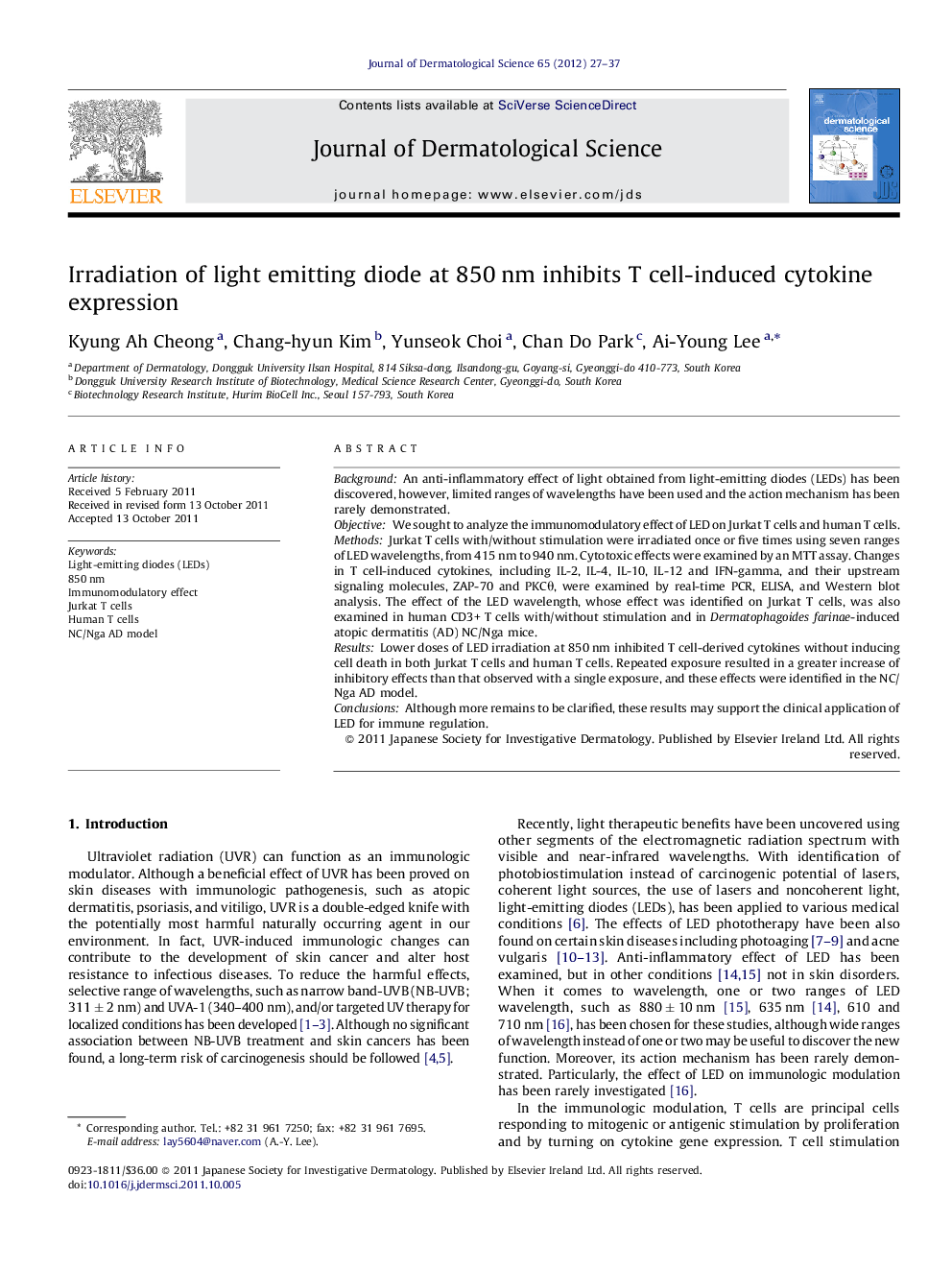| کد مقاله | کد نشریه | سال انتشار | مقاله انگلیسی | نسخه تمام متن |
|---|---|---|---|---|
| 3213548 | 1203239 | 2012 | 11 صفحه PDF | دانلود رایگان |

BackgroundAn anti-inflammatory effect of light obtained from light-emitting diodes (LEDs) has been discovered, however, limited ranges of wavelengths have been used and the action mechanism has been rarely demonstrated.ObjectiveWe sought to analyze the immunomodulatory effect of LED on Jurkat T cells and human T cells.MethodsJurkat T cells with/without stimulation were irradiated once or five times using seven ranges of LED wavelengths, from 415 nm to 940 nm. Cytotoxic effects were examined by an MTT assay. Changes in T cell-induced cytokines, including IL-2, IL-4, IL-10, IL-12 and IFN-gamma, and their upstream signaling molecules, ZAP-70 and PKCθ, were examined by real-time PCR, ELISA, and Western blot analysis. The effect of the LED wavelength, whose effect was identified on Jurkat T cells, was also examined in human CD3+ T cells with/without stimulation and in Dermatophagoides farinae-induced atopic dermatitis (AD) NC/Nga mice.ResultsLower doses of LED irradiation at 850 nm inhibited T cell-derived cytokines without inducing cell death in both Jurkat T cells and human T cells. Repeated exposure resulted in a greater increase of inhibitory effects than that observed with a single exposure, and these effects were identified in the NC/Nga AD model.ConclusionsAlthough more remains to be clarified, these results may support the clinical application of LED for immune regulation.
Journal: Journal of Dermatological Science - Volume 65, Issue 1, January 2012, Pages 27–37